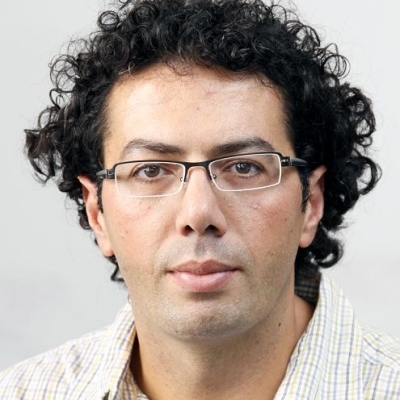



 Ramzy Baroud
Ramzy BaroudAs confused as they have always been regarding their stance in world conflicts, many Muslims seem unable to form a coherent and comprehensible position on NATO’s bombardment of Yugoslavia. The source of the confusion is the fact that neither the US nor Europe has ever taken a strong stand on any issue unless there is ‘hard cash’ waiting at the end of the tunnel.
‘Human Rights’, as the United States has taught us, is the pseudo-reason for all wars against other nations. Yet the motive in bombing Yugoslavia is still unclear. The lack of clarity strengthens the ‘humanitarian mission’ argument. What encouraged this fantasy of the ‘Good Old West’ is the fact that most Kosovars are Muslims. Blaming America and asking it to stop its aggression is going to provoke the question ‘So what are you Muslims going to do about it?’ And because our position is as shaky as our unity, our reaction will always be either complete silence or bashful condemnations.
Al-Rai, a Qatari newspaper, recently broke the silence on NATO’s suspicious goals. The paper, which described NATO’s goal as plainly stupid, has sparked a new problem for the mainstream Arab media: to re-think its support regarding NATO’s campaign.
It is time to ask ourselves: ‘does the fact that NATO’s goal is hidden mean that we should accept any false argument from NATO’s spokespersons?’ Before we go any farther in our blind approval of airstrikes, let us consider this: NATO’s bombings have served Milosovic’s ethnic-cleansing program in a way he himself probably never thought possible. NATO, which is known to have the world’s most efficient military, must have expected that such consequences would result from their random attacks. Yet NATO was clearly unprepared to deal with the refugee problem. Bad planning? Surely not. The only credible explanation is that the plight of the Kosovars was the least of NATO’s concerns.
The concept of ‘humanitarianism’ states clearly that all human suffering is equal, and therefore should be perceived and handled impartially. If NATO cares for all humans, let us open their eyes to something that they might have failed to see.
For 50 years, Palestinians have been living in what the UN described as ‘temporary shelters’ in 1948, now known as ‘refugee camps’. The Palestinian suffering, older than NATO itself, is viewed now with the ‘life isn’t fair’ philosophy. Palestinian refugees in Lebanon, who are living a life that is lower than a dog, are dying from polluted water, disease and weekly Israeli bombardments. Their situation indeed got so desperate in the early eighties, during the Israel embargo on South Lebanon, that they chased homeless dogs and cats in the streets to eat.
Where was NATO then? Where is it now? Where are the ‘humanitarians’ to witness, to fight Israel and to demand the unconditional return of Palestinian refugees? It is true that the Palestinian refugees are not Europeans. They are a bit darker but they are still homo sapiens. Their children need milk regardless of their skin color or geographic location.
Another irony created by the war in Yugoslavia is Turkey’s position. Turkey mourns daily the suffering of Muslim refugees in Kosova while jailing their own Muslims and forcing Muslim women to expose themselves to public view. That is nothing if you compare it to Turkey’s treatment of the Kurds, which is hardly less inhumane than Milosovic’s policies in Kosova.
That is not to say that NATO over-values Kosovars in comparison to others. In fact, the West values nothing but its own interests. The present situation in Kosova, whether we like it or not, shows clearly that NATO has caused more suffering to the Kosovars than anyone. But not having an alternative doesn’t necessarily mean we should embrace any other reality no matter how ugly it is. We might be weak, fragmented and very confused, but we shouldn’t be naive as well.
Most worrying perhaps is the possibility that the Kosovars may never return to their towns and villages. This fear is not as irrational as it may sound. Didn’t the Palestinians once think that they would return to Palestine a few days after their departure? As a Palestinian refugee myself, I recall my grandfather telling us about the day my family was forced to leave Palestine. He said, ‘I refused to take the new clothes and blankets with me, so they would not get dusty. I thought, why should we bother carrying all of this if we will return to our homes in no time? The world is not going to abandon us.’
Abandoning them was exactly what the whole world has done. For 45 years my grandfather waited to return to his village and he died waiting. For the Kosovars to return, we must take a strong stand in supporting that right as the first element in any settlement. We should not repeat the same mistakes again. If the west has its own interests in mind, our concern should be to protect and care for Kosovars. If not as Muslims, at least as human beings.
Muslimedia: June 1-15, 1999
